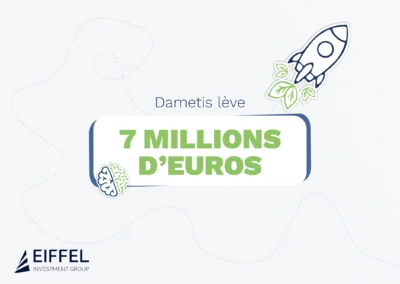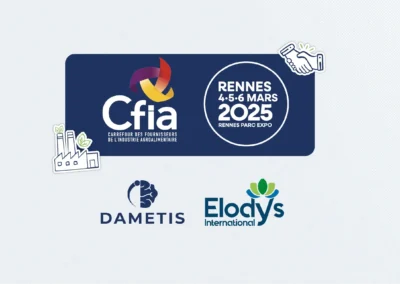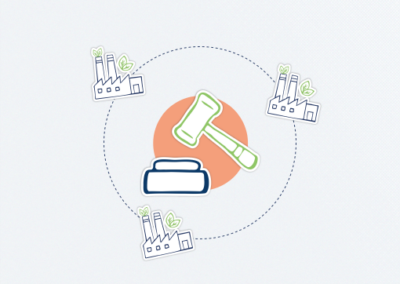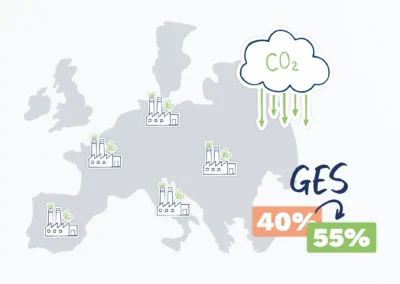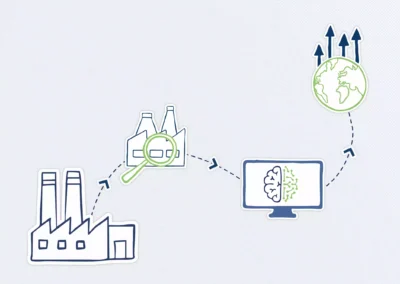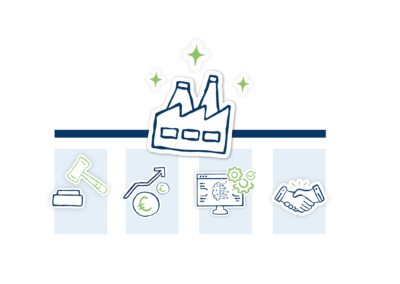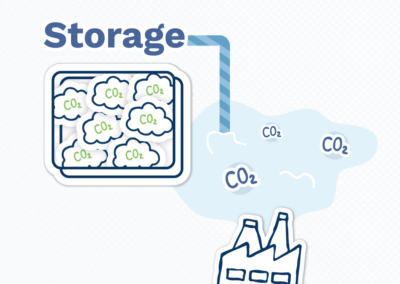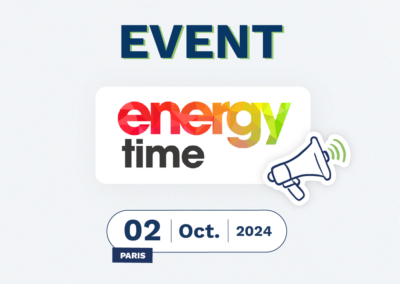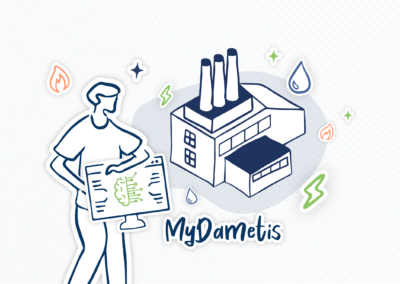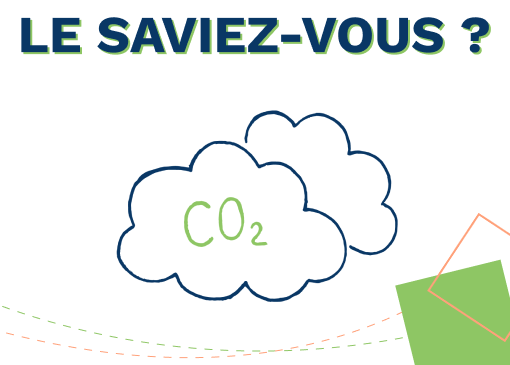
Decarbonization or decarbonization? What’s the difference, and which term to choose?
Working towards zero carbon also means learning new terms every day. Understanding these terms enables you to take actions that are more relevant to your business and more effective. So, you’ve read decarbonation, but also decarbonization. Is one of the two a mistake, or are they simply two words with distinct meanings?
Decarbonation or decarbonization: technically synonymous
First of all, decarbonation and decarbonization are both correct, although some spellcheckers still suggest (wrongly, as we’ll see later) replacing decarbonation with decarbonatation. Indeed, this word is more recent and has not yet been added to all spellcheckers. First of all, if both terms exist, what is their definition?
Decarbonation or decarbonization: definition
Decarbonization is the reduction of carbon emissions. The term can be applied at company, industry or national level. It includes:
-
- Measures to reduce the use of hydrocarbons
- Reducing greenhouse gas emissions through filtration and transformation
What about decarbonization? The definition is the same. So is there any point in asking whether to use decarbonation or decarbonization? Depending on the situation, the use of “decarbonation” will be preferred, while the use of “decarbonization” will avoid misunderstandings.
Decarbonization, a term derived from the English
Decarbonisation is the English term, which entered the French vocabulary, then was translated as decarbonation. Institutionally, some players advocate using decarbonation rather than decarbonisation, in order to privilege the French language over the Anglicism. Others recognize the indifferent use of the two expressions as correct and legitimate. The Académie Française has not settled the question.
If you use “decarbonation” all the time in France, you can be sure of always being “technically” correct. However, beware of misunderstandings when dealing with English-speaking colleagues or prospects.
Decarbonation or decarbonization with English speakers?
Focus on decarbonization with English-speaking contacts
As mentioned earlier, decarbonisation comes from the English word “decarbonisation”, also written “decarbonization” in the USA. Internationally, most people will be more familiar with the term “decarbonisation”.
However, the term decarbonation also exists in English, but the two words don’t mean the same thing. It’s a false friend, not a transparent word. In other words, it is similar or even identical to a French word, but has a different meaning. The translation of “decarbonation” from English is “décarbonatation”. That’s why some spellcheckers today erroneously suggest decarbonatation as a correction for decarbonation.

An example of a spellchecker that recommends replacing decarbonation with decarbonatation.
Definition of decarbonation, translation of “decarbonation” from English
Decarbonation is the removal of carbonates from soil or water, to make them less calcareous. This word has nothing to do with decarbonation or decarbonisation in French. However, if you use the word decarbonation with English-speaking Internet users, they may not understand the meaning of your sentence. Or, if they do, they may assume you’ve made a mistake, affecting your credibility.
With English speakers, we recommend you use “decarbonization”, which will ensure you’re always understood.
What are web users looking for more: decarbonization or decarbonization?
It’s worth finding out which word is the most popular with the French. After all, language is something that is constantly evolving through practice, and it would be logical to assume that the most widely used word is the best choice.
“Decarbonation” more popular than “decarbonization” since September 2020
Internet users have been looking more for decarbonization than decarbonization since September 2020, and this trend has been growing ever since.
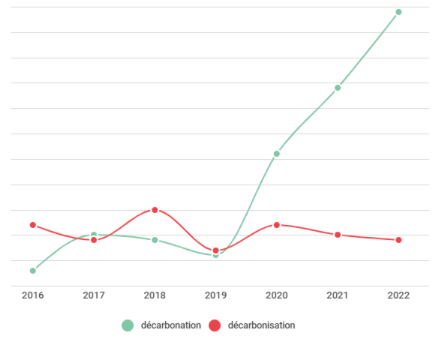
Comparison of research on “decarbonation” or “decarbonization” in France over the last 5 years
The two terms were used equally until September 2020. After this date, a break occurred. The French are increasingly talking about decarbonation. After this date, the number of projects is increasing, and they are presented as decarbonization projects, rather than decarbonization projects. To understand this evolution, we need to look at the “France Relance” project, which launched the decarbonization boom in France.
The “France Relance” project, the beginning of the plebiscite for “decarbonization” rather than “decarbonization”.
“France Relance” is a 100 Billion Euro recovery plan, focused on “ecology, competitiveness and cohesion”. As part of this recovery plan, on September 9, 2020, the Ministry of the Economy, Finance and Recovery launched a call for projects for the decarbonization of industry as part of “France Relance.” This use of the term “decarbonation” in a government project has both created excitement for the topic and allowed the term “decarbonation” to take the ascendancy over the term “decarbonization”.
Using “decarbonation” will make you “right” with most of your French-speaking contacts.
In practice, how do you choose between decarbonization and decarbonization?
Decarbonation is a word created in France to enrich the language. By using it, you ensure the highest degree of “correctness” and avoid using an Anglicism. It’s also the term used by the majority of French people. What’s more, it will be accepted in all exclusively French-speaking circles. However, by using the term decarbonization, you can be sure of being understood, even internationally. We therefore recommend that you use this term in your practical communications, to avoid any misunderstandings.









